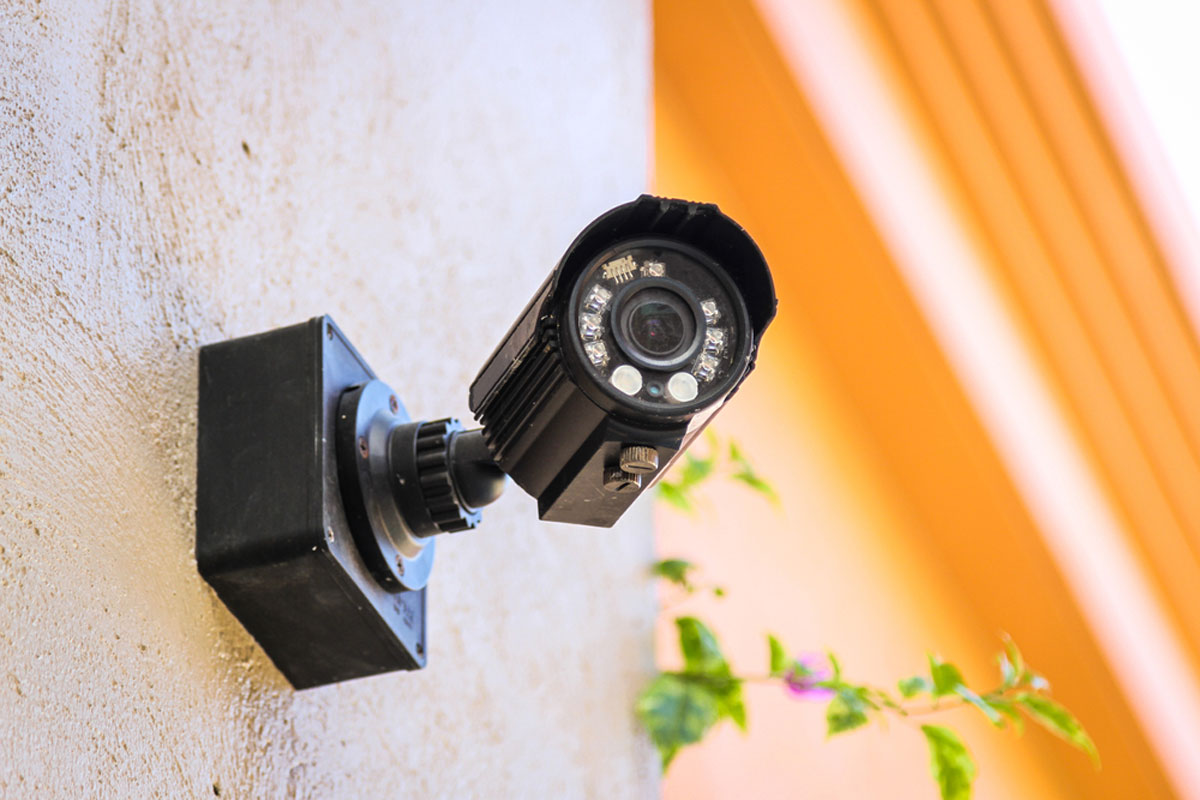Are you a tenant in a rental community? Have you ever noticed security cameras around your complex and wondered what they are used for, or which laws regulate their use?
Cameras are generally installed in public areas, including rental communities, for your safety—but there are rules landlords must follow when installing them and using any footage. For example, landlords can’t record audio without your consent, and they should avoid placing cameras in private areas.
In this article, we’ll give you valuable information about security camera laws and how to protect your privacy in your rental community.
Understanding Security Camera Regulations
Do apartment complexes have cameras? For most communities, the answer is yes. For this reason, if you’re a tenant, it’s important for you to understand the regulations surrounding security cameras. Apartment security camera laws vary, but most apartment complexes have cameras installed in common areas like parking lots, hallways, stairwells, pools, and gyms. These cameras are meant to enhance security and reassure tenants that their safety is a priority.
However, it’s illegal for landlords to install video or audio recording cameras in private spaces without your consent. So, if you’re wondering how to find a camera in your house, you should focus on areas where you have a reasonable expectation of privacy, such as your apartment, garage, or public restrooms. Your landlord cannot install any cameras in these areas.
Landlords’ Responsibilities and Legal Obligations
To ensure compliance with security camera laws, landlords have several responsibilities and legal obligations.
First and foremost, landlords must inform tenants about the presence of security cameras in the rental property. This includes notifying tenants about the areas where cameras are installed and the purpose of their use.
Additionally, landlords are responsible for ensuring that the cameras are used solely for surveillance and safety monitoring purposes and not for spying on tenants or invading their privacy.
It’s also the landlord’s duty to maintain the security camera system and ensure that it’s functioning properly. If any issues arise with the cameras, landlords should promptly address and fix them.
Tenant Rights and Privacy Protection
Protecting your privacy and ensuring your rights as a tenant are crucial when it comes to security camera laws. As a tenant, you have the right to privacy in your living space, and landlords should respect this. Security cameras shouldn’t be installed in private areas like apartments, garages, or public restrooms, where you have a reasonable expectation of privacy.
Landlords are generally allowed to install video-only cameras in public spaces such as hallways, laundry rooms, and mailrooms. However, recording audio without your consent is illegal, even in public areas. It’s important for landlords to provide notice of any video surveillance to avoid legal liability.
Proper Use and Placement of Security Cameras
When using security cameras in rental communities, it’s important to consider the proper use and placement of these devices.
Security cameras should be installed in common areas such as parking lots, hallways, stairwells, pools, and gyms. These areas are where tenants and their belongings are more likely to be exposed to potential security risks. By placing cameras in these locations, landlords can help deter criminal activity and provide a sense of security for their tenants.
Proper use and placement of security cameras are essential to protect both the tenants and the landlord’s liability.
Consequences of Violating Security Camera Laws
If your landlord breaks the law by installing security cameras without your consent, they could face legal repercussions. Violating security camera laws can result in serious consequences, including fines, legal penalties, and even criminal charges. The extent of the punishment may vary depending on the jurisdiction and the specific circumstances of the violation.
Tenants must also follow security camera laws. If a tenant were to illegally install a camera, they may be required to remove the cameras and pay for any damages caused by the installation. Additionally, landlords may take legal action against tenants who violate security camera laws, potentially leading to eviction or other legal disputes.
It’s important to understand and comply with the laws regarding security cameras in order to avoid these negative consequences and protect both your rights as a tenant and the privacy of others.
Conclusion
In conclusion, as a tenant living in a rental community, it’s important to be aware of the laws and regulations regarding security camera usage. Understanding your rights and the responsibilities of landlords can help protect your privacy and ensure a safe living environment.
By following proper guidelines for camera installation and respecting tenant rights, rental communities can maintain a balance between security and privacy for all residents.

